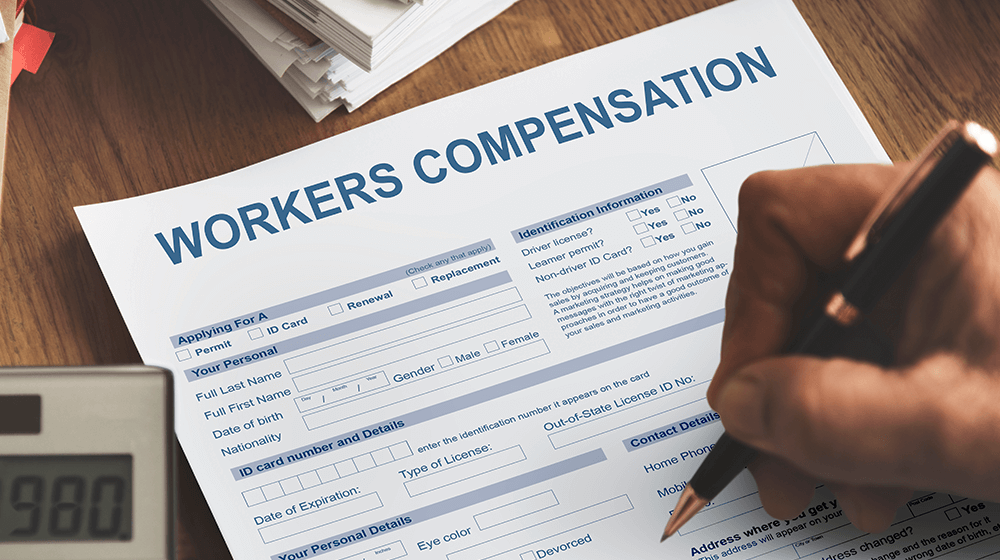Business insurance plays a crucial role in protecting businesses from potential risks and liabilities. In Nigeria, where the business landscape is constantly evolving and unpredictable, having the right insurance coverage can make a significant difference in the survival and growth of a business.
One of the most common types of business insurance in Nigeria is general liability insurance. This type of coverage provides protection against third-party claims for bodily injury, property damage, and advertising injury. For example, if a customer slips and falls in your store and decides to sue for medical expenses, general liability insurance can help cover the legal costs and potential settlement.
Another important type of business insurance is property insurance. This coverage protects your physical assets, such as buildings, equipment, and inventory, against damage or loss due to fire, theft, vandalism, or natural disasters. With Nigeria’s unpredictable weather patterns and security challenges, having property insurance can give business owners peace of mind knowing that their investments are protected.
Furthermore, business interruption insurance is another vital aspect of business insurance in Nigeria. This type of coverage provides financial protection in the event that your business operations are temporarily halted due to unforeseen circumstances, such as a fire or a natural disaster. Business interruption insurance can help cover ongoing expenses, such as employee salaries and rent, while your business is unable to generate revenue.
Choosing the right insurance provider is equally important as selecting the right coverage. It is crucial to work with an insurance company that has a strong reputation, financial stability, and a track record of providing excellent customer service. Conducting thorough research, reading reviews, and seeking recommendations from other business owners can help you make an informed decision.
In conclusion, business insurance is a critical component of running a successful business in Nigeria. It provides protection against potential risks and liabilities, ensuring the continuity and growth of your business. By understanding the importance of business insurance, familiarizing yourself with the types of coverage available, and selecting the right insurance provider, you can safeguard your business and focus on its long-term success.
The Importance of Business Insurance
Business insurance serves as a safety net for businesses, protecting them from unforeseen events that could have a significant financial impact. In Nigeria, where businesses face various risks and challenges, having the right insurance coverage is crucial for their survival and growth.
One of the main reasons why business insurance is important is that it provides financial protection against property damage or loss. Whether it’s due to fire, theft, or natural disasters, having insurance coverage ensures that businesses can recover and continue their operations without incurring substantial financial losses.
Additionally, business insurance also covers liability claims. In the event that a customer or third party suffers injuries or property damage as a result of the business’s operations, insurance coverage can help cover the costs of legal fees, settlements, or judgments.
Furthermore, business insurance can also provide coverage for business interruption. This is particularly relevant in Nigeria, where businesses may face disruptions due to political unrest, infrastructure issues, or other unforeseen circumstances. With the right insurance policy, businesses can receive compensation for lost income and additional expenses incurred during the interruption.
Moreover, business insurance offers protection against cyber threats. In today’s digital age, businesses are increasingly vulnerable to cyberattacks and data breaches. These can result in significant financial losses, reputational damage, and legal liabilities. However, with the right insurance coverage, businesses can mitigate these risks and receive financial assistance in the event of a cyber incident.
Another important aspect of business insurance is that it can provide coverage for employee-related risks. This includes workers’ compensation insurance, which helps cover medical expenses and lost wages for employees who are injured or become ill on the job. Additionally, business insurance can also provide coverage for employment practices liability, protecting businesses from claims related to wrongful termination, discrimination, or harassment.
Furthermore, business insurance can also offer protection against professional liabilities. This is particularly important for businesses that provide professional services or advice, such as doctors, lawyers, architects, or consultants. Professional liability insurance, also known as errors and omissions insurance, can help cover the costs of legal defense and damages in the event that a client alleges negligence or errors in the services provided.
In conclusion, business insurance plays a crucial role in protecting businesses from various risks and challenges. Whether it’s property damage, liability claims, business interruption, cyber threats, employee-related risks, or professional liabilities, having the right insurance coverage can provide financial peace of mind and help businesses navigate through unexpected events. Therefore, it is essential for businesses in Nigeria to carefully assess their insurance needs and work with reputable insurance providers to ensure they have the appropriate coverage in place.
Types of Business Insurance Coverage
There are several types of business insurance coverage available in Nigeria, each designed to address specific risks and needs. It is important for business owners to understand these coverage options in order to choose the most suitable policies for their businesses. Let’s take a closer look at some of the key types of business insurance coverage:
1. Property Insurance
Property insurance provides coverage for physical assets such as buildings, equipment, inventory, and furnishings. It protects businesses against damage or loss caused by fire, theft, vandalism, or natural disasters. Property insurance is essential for businesses in Nigeria, where the risk of property damage due to factors such as flooding or political unrest is relatively high.
2. Liability Insurance
Liability insurance protects businesses from legal claims and financial losses resulting from third-party injuries or property damage. It covers the costs of legal defense, settlements, or judgments. In Nigeria, where businesses face potential liability risks on a daily basis, having liability insurance is crucial for protecting the business’s financial stability.
3. Business Interruption Insurance
Business interruption insurance provides coverage for lost income and additional expenses incurred when a business is unable to operate due to unforeseen events such as natural disasters, political unrest, or infrastructure issues. This type of insurance is particularly important in Nigeria, where businesses may face frequent disruptions that can have a significant impact on their revenue.
4. Professional Indemnity Insurance
Professional indemnity insurance, also known as errors and omissions insurance, is designed for businesses that provide professional services or advice. It protects businesses from legal claims and financial losses resulting from errors, omissions, or negligence in their professional services. This type of insurance is especially relevant for businesses in sectors such as consulting, legal services, or healthcare.
5. Cyber Insurance
In today’s digital age, cyber insurance has become increasingly important for businesses. It provides coverage for losses and liabilities resulting from cyberattacks, data breaches, or other cyber risks. With the rise in cybercrime and the increasing reliance on technology, businesses in Nigeria should consider investing in cyber insurance to protect their sensitive data and financial assets.
These are just a few examples of the types of business insurance coverage available in Nigeria. It is important for business owners to carefully assess their specific risks and needs in order to determine the most appropriate coverage options for their businesses. By having the right insurance policies in place, businesses can protect themselves from potential financial losses and ensure their long-term success.
6. Claims Process
Another important factor to consider when choosing an insurance provider is the claims process. It is essential to understand how the company handles claims and the efficiency of their claims settlement. Look for providers that have a straightforward and streamlined claims process, with clear guidelines and timelines for submitting and resolving claims.
7. Network of Service Providers
Check if the insurance provider has a wide network of service providers, such as repair shops, medical facilities, and legal services. A robust network can be advantageous when you need to access services covered by your insurance policy. It ensures that you have a range of options and can easily find reputable and reliable service providers.
8. Customization and Flexibility
Consider whether the insurance provider offers customization and flexibility in their policies. Every business is unique, and your insurance needs may differ from others in your industry. Look for providers that allow you to tailor your coverage to suit your specific requirements. This could include adding or removing coverage options, adjusting coverage limits, or modifying deductibles.
9. Additional Benefits and Services
Some insurance providers offer additional benefits and services that can add value to your policy. These could include risk management resources, loss prevention programs, or access to industry-specific expertise and advice. Assess whether these additional benefits align with your business needs and can provide you with valuable support beyond basic insurance coverage.
10. Long-Term Partnership
When selecting an insurance provider, it is important to think long-term. Consider whether the company is committed to building a lasting partnership with its clients. Look for providers that offer ongoing support, regular policy reviews, and the ability to adapt your coverage as your business grows and evolves.
By considering these factors, you can make an informed decision when choosing an insurance provider for your business in Nigeria. Remember that insurance is an investment in protecting your business, so take the time to research and compare providers to find the one that best meets your needs.


